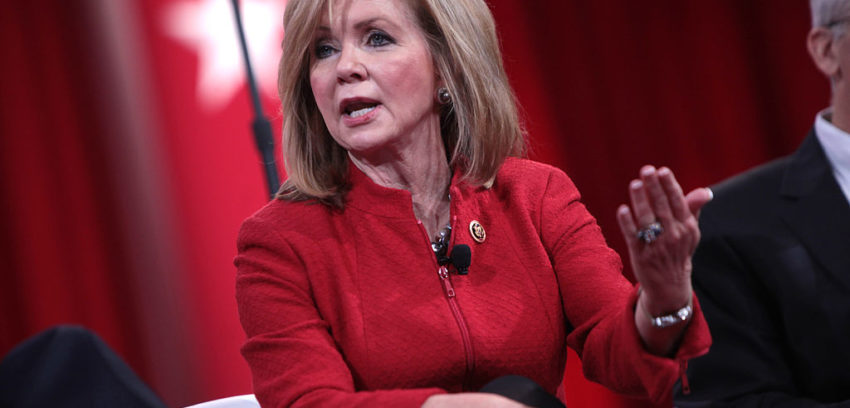Rep. Marsha Blackburn skipped a vote last week on bipartisan legislation to curb the opioid crisis, even as she campaigned for the Senate with a promise to “combat the opioid epidemic” and released a TV ad touting her efforts on the issue.
Blackburn, R-Tenn., missed a vote Friday on the SUPPORT for Patients and Communities Act, which includes reforms to Medicaid, Medicare and other public-health programs for recovery from and prevention of opioid abuse.
It was the latest in a string of moves in her congressional career that downplayed the opioid crisis, which has rocked the Volunteer State, while her campaign was receiving hundreds of thousands of dollars from drug companies.
Tennessee, according to the National Institute on Drug Abuse, has one of the highest rates of opioid-related overdose deaths in the country, with more than 18 deaths for every 100,000 residents in 2016 — 36 percent higher than the national average.
In 2014, Blackburn co-sponsored two versions of a bill to weaken the Drug Enforcement Administration’s ability to stop opioid distributors who don’t follow the law, potentially pushing highly addictive drugs onto the black market. The legislation passed the House but failed in the Senate before ultimately becoming law in 2016.
At a House subcommittee hearing in 2014, she said Washington should be giving drug suppliers more guidance, not fighting them.
“There needs to be a clear distinction between the legitimate pharmaceutical supply chain that directly serves patients and the criminals who are diverting and selling illegal drugs. Supply chain stakeholders need further guidance on how to collaborate more effectively with law enforcement,” Blackburn said before touting her co-sponsorship of the bill, the Ensuring Patient Access and Effective Drug Enforcement Act.
It was that bill that last year sunk the nomination of its sponsor, Rep. Tom Marino, R-Pa., to be the director of President Donald Trump’s White House Office of National Drug Control Policy.
The nomination was pulled following a Washington Post and “60 Minutes” investigation into the drug industry’s spending on lobbying and campaign contributions, including $100,000 to Marino and $120,000 to Blackburn between 2013 and 2017.
PolitiFact found that contributions to Blackburn’s campaign shot up after she signed on to the bill. In her career, the pharmaceutical industry has given more than $860,000 to her campaigns, behind only health professionals and retirees.
Blackburn has a history of voting against bills to expand funding for treatment, including a vote in June against $1 billion for state opioid-abuse programs and a vote against the omnibus spending bill in 2015 that included funding for treatment.

